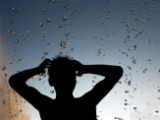- عربي
- 中文
- English
- Français
- Русский
- Español
SRSG interview AlertNet: World must ratify rules to stem child abuse

Bangkok (Thailand) 16 January 2012 - The United Nations’ special representative on violence against children this week urged countries globally to ratify two protocols protecting the world’s youngest people, as she visited the East Asia and Pacific region where over one in four children have been sexually abused.
Marta Santos Pais called on governments to ratify the two optional protocols to the Convention on the Rights of the Child to help stem what UNICEF, the U.N.’s children’s agency, calls a "growing abuse and exploitation of children worldwide."
These optional protocols relate to the sale of children, child prostitution and child pornography and to the involvement of children in armed conflict.
"Ratification is the beginning of a never-ending process of prevention, awareness-raising and capacity-building of professionals (social workers, lawyers, health workers) who may be the first interact with the child in case of abuse," she said.
So far some 40 odd countries have yet to ratify both of them, almost half of them from East Asia and Pacific, including Indonesia, Singapore, Russia, Brunei and many of the Pacific Island countries. In Europe, Finland and Ireland are two that have not yet ratified both of the protocols.
In the East Asia and Pacific region, home to 580 million children, boys and girls suffering from sexual abuse in almost equal numbers. These similar statistics for boys and girls are an anomaly, as globally victims of sexual violence are more often girls and women.
In Europe, in comparison, one in five children is a victim of some form of sexual violence, Pais said.
“I think we should be shocked even if it was only one child (who has been sexually abused), but over one in four children is such a high prevalence that you should be dramatically worried,” she said.
“This is a pattern we see reflected in many parts of the world,” said Pais, who was in Thailand’s capital for a visit. “It shows that children have not been a priority and sexual violence (against them) has not been given the sufficient attention.”
In Africa, national studies in Ethiopia, South Africa and Swaziland show that between 30 and 40 percent of girls suffer from sexual abuse and violence before they are 18 years old, UNICEF says.
But available data may simply be the tip of the iceberg, Pais added.
Children not protected
Like in other parts of the world, a lack of data hampers child-protection efforts in the East Asia and Pacific region. The invisibility of child abuse, especially when it happens within the confines of a home, makes it more difficult to collect data, Pais said.
“Without the data, it is difficult to convince people how important it is to set up services... and in having a system ready to help families that may be at risk of suffering and provoking violence,” she said.
“According to available data that we have in most regions, most cases happen at home, schools or care institutions, settings where children are expected to be protected.”
Parents and family members are expected to be – and usually are – the best protectors of children, Pais said. But when they are the ones inflicting violence, there is little intervention – either because people are unaware of what is happening or sometimes to protect the child from being stigmatised and victimised further, she said.
“There is a conspiracy of silence and unfortunately that hasn’t helped children to overcome (their trauma),” she said.
In this region alone, a study of six provinces in China found half of all children surveyed had been victims of multiple forms of harm, while another in Pacific Island countries found that over 30 percent of girls and boys in the Marshall Islands have experienced rape, UNICEF said.
Pais is confident, however, that governments are realising that having reliable data allows them to invest more in prevention rather than spend more afterwards to respond to cases.
Lifelong effects
The impact of such abuse follows the children into adulthood and for the rest of their lives, said Pais.
“Children become very distracted in schools, they face strong difficulties in having trusted relationships with others, and very often they become dependent on alcohol and drugs,” she said.
They also tend to suffer from anxiety and depression, while some self-harm because they find it difficult to cope with the trauma they’ve endured. In many cases, they are unable to lead autonomous and confident lives, she said.
“So the effect on society is incredibly high,” she added.
A 2011 study in the United States of girls who were sexually abused as children found that some of the girls had stress hormone levels equivalent to Vietnam War veterans, suggesting that they were living in a “chronic state of stress and never feel safe,” the study’s researchers said.
"In no ways is (ratification) a magic solution”, Pais said. “…but it keeps the pressure on governments, institutions and society as a whole to be paying attention."

